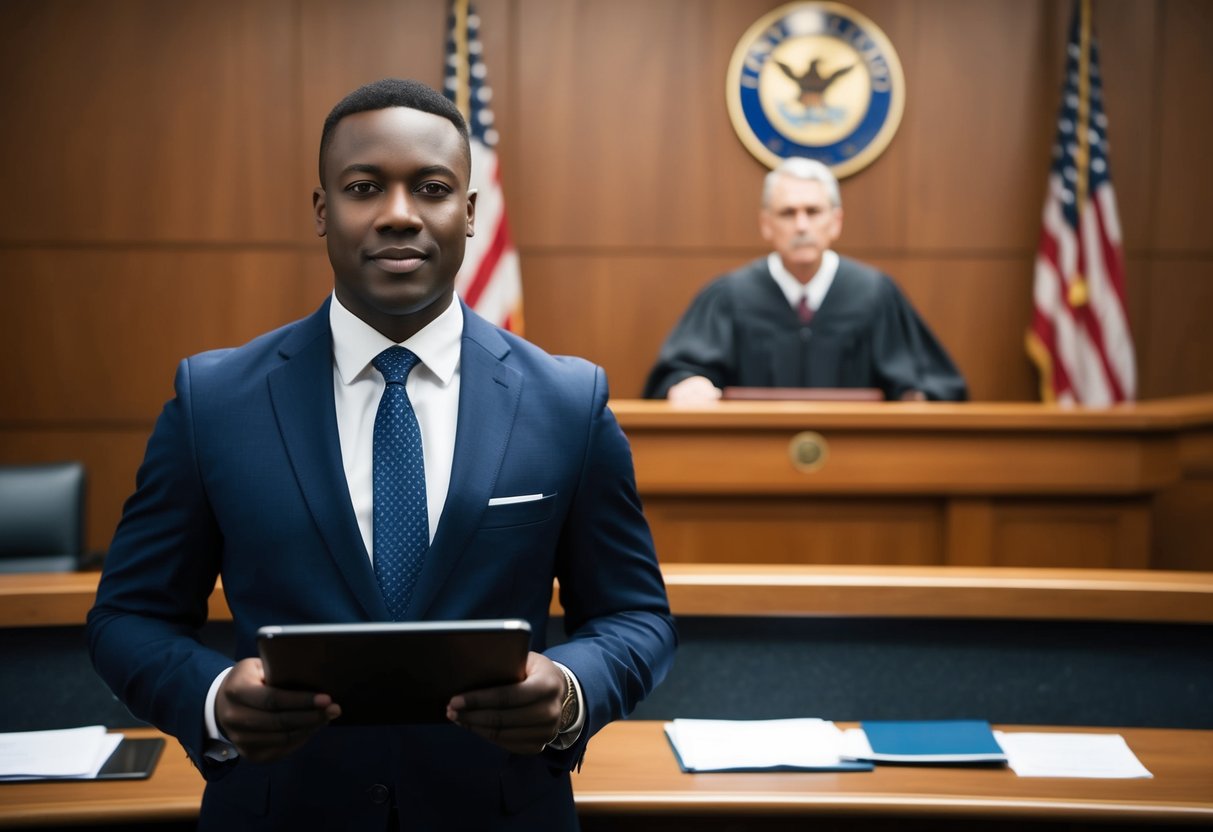Understanding Your Rights and the Importance of Legal Representation

Knowing your rights and securing proper legal representation are crucial when facing misdemeanor charges. Let’s look at key constitutional protections, the right to counsel, and differences in legal representation for misdemeanors and felonies.
Know Your Constitutional Protections
As citizens, we have specific rights guaranteed by the Constitution. Fourth Amendment safeguards against unreasonable searches and seizures. Fifth Amendment ensures due process and privileges against self-incrimination. It’s vital to be aware of these rights during any criminal proceedings.
These protections help ensure fairness and justice. For example, if law enforcement violates these rights, evidence obtained illegally may be excluded from the trial. This can impact the outcome of your case significantly.
The Sixth Amendment and Right to Counsel
The Sixth Amendment guarantees our right to a fair trial. An essential part of this is the right to counsel. The landmark U.S. Supreme Court case Gideon v. Wainwright established that the state must provide an attorney if we cannot afford one.
This right helps us receive effective representation, critical during arraignment and bail hearings. Public defenders or court-appointed attorneys are provided in such cases. Having legal advice ensures we understand the charges, the potential penalties, and the best defenses available.
Difference Between Misdemeanor and Felony Representation
Misdemeanors are less severe than felonies but still carry serious consequences. These could include fines, probation, or jail time. Effective legal representation in misdemeanor cases can often result in reduced charges or alternative sentencing options.
In contrast, felonies involve more severe crimes like robbery or assault. The stakes are higher, and legal defense is more complex. While both misdemeanor and felony cases require skilled attorneys, felony cases might involve more extensive investigations and preparation.
Understanding these differences highlights why choosing the right lawyer is crucial. Whether facing a minor offense or a serious charge, having a knowledgeable attorney can make a significant difference in the outcome.
Selecting the Best Criminal Defense Attorney for Your Case
When choosing a criminal defense attorney for misdemeanor cases, several key factors must be considered. These factors include the attorney’s experience and specialization, their communication style and strategy, and their reputation and track record.
Evaluating Experience and Specialization
We need to know if the attorney has experience with misdemeanor cases. Not all criminal defense lawyers handle every type of crime equally well. Look for someone who specializes in misdemeanors and has significant experience in this area.
Local experience is important. Attorneys familiar with local courts and legal communities can navigate the system more effectively.
Check the attorney’s education and certifications. A well-qualified lawyer should have relevant credentials and ongoing education in criminal law.
Assessing Communication and Strategy
Effective communication is vital. A good criminal defense attorney should be able to explain legal terms in simple language and keep us informed about our case. We should feel comfortable asking questions and expect clear, timely responses.
Meet the attorney for a consultation to assess their communication style. Are they listening to our concerns? Do they explain their strategy clearly?
Strategy is another key factor. The attorney should outline a clear defensive plan based on facts and evidence. We need to trust their approach and feel confident they have a sound strategy.
Researching Reputation and Track Record
Reputation in the legal community can be telling. Look for a lawyer with strong endorsements from peers and positive reviews from clients. Check online reviews, legal directories, and consider asking for references.
A good track record can offer reassurance. It’s helpful to know the attorney has successfully handled similar cases before. Ask about their trial experience and the outcomes of previous cases.
Referrals can also be a great way to find a reputable attorney. Trusted friends or family who have worked with a criminal defense lawyer can offer valuable advice.
Navigating the Legal Process and Financial Considerations

Navigating the legal process and understanding the financial aspects are crucial when dealing with misdemeanor cases. We’ll cover how to prepare for trials and hearings, understand billing and legal fees, and consider the financial impact of legal decisions.
Preparing for Trials and Hearings
Preparing for trials and hearings involves several steps. First, we need to gather and review all relevant documents, including police reports, witness statements, and other evidence.
Second, we should prepare questions for potential witnesses to strengthen our case.
Third, it’s important to understand how the court operates, including the roles of the judge, prosecutor, and defense attorney.
We must be ready for arraignment, where charges are formally read, and be aware of plea options to avoid going to trial.
Understanding Billing and Legal Fees
Legal fees can vary based on the nature of the case and lawyer’s experience. Hourly Rates: Many lawyers charge by the hour, which can quickly add up. Flat Fees: Some may offer a flat fee for specific services, like representing us during a DWI case.
An important step is to ask for a detailed fee agreement that outlines all costs and billing practices. This should cover areas like administrative fees, court filing fees, and additional charges for resources or witness fees.
Considering the Financial Impact of Legal Decisions
Legal decisions can have short-term and long-term financial impacts. For instance, a conviction can lead to fines, which can be expensive, and for some crimes, imprisonment could result in loss of income.
Additionally, criminal records can affect future job opportunities and educational activities. It’s crucial to consider if it’s worth spending more for top legal defense to potentially reduce the severity of outcomes. We should evaluate our financial situation and ability to pay the legal fees without unduly straining our finances.




